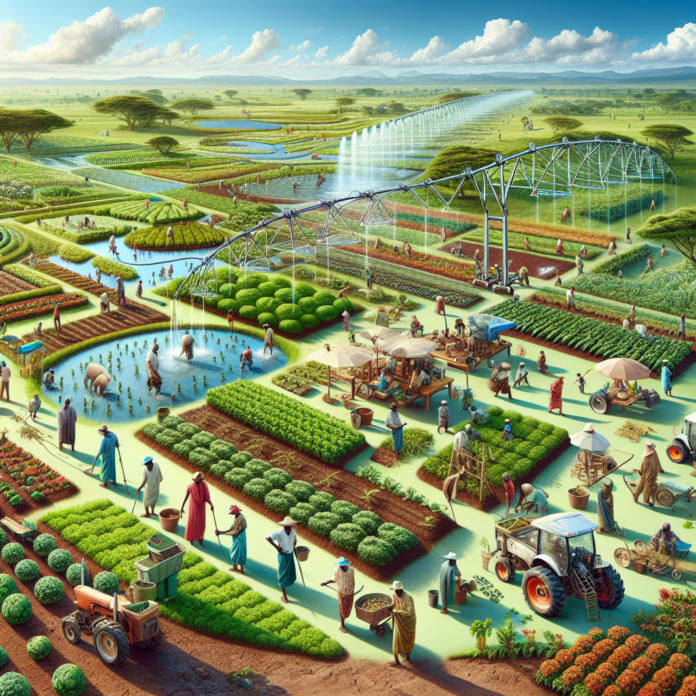Tanzania’s Agricultural Transformation: Pioneering Climate Resilience and Sustainable Farming
Tanzania’s Agricultural Transformation: Pioneering Climate Resilience and Sustainable Farming
Tanzania is at the forefront of agricultural transformation in East Africa, emphasizing climate resilience and sustainable farming practices. As climate change poses significant challenges to agriculture globally, Tanzania is implementing innovative strategies to ensure food security and sustainable livelihoods for its population.
Embracing Climate-Smart Agriculture
Tanzania has actively adopted climate-smart agriculture (CSA) techniques to enhance productivity while minimizing environmental impact. These techniques include the use of drought-resistant crop varieties, soil conservation practices, and efficient water management systems. By integrating CSA, Tanzanian farmers are better equipped to adapt to changing weather patterns and mitigate the adverse effects of climate change.
Policy Support and Government Initiatives
The Tanzanian government plays a critical role in driving agricultural transformation. Through various policy frameworks and initiatives, the government supports research and development, provides subsidies for agricultural inputs, and enhances access to credit for smallholder farmers. These efforts aim to boost agricultural productivity and ensure that farming practices are both economically viable and environmentally sustainable.
Empowering Farmers through Education and Training
Education and training programs are essential components of Tanzania’s strategy to build a resilient agricultural sector. By equipping farmers with the knowledge and skills needed to implement sustainable practices, these programs empower them to make informed decisions that enhance productivity and sustainability. Extension services and farmer field schools are pivotal in disseminating this knowledge across rural communities.
Leveraging Technology and Innovation
Technology and innovation are crucial in Tanzania’s agricultural transformation. The use of digital platforms for market access, precision farming tools, and mobile applications for weather forecasting and pest management are transforming the way Tanzanian farmers operate. These technological advancements help increase efficiency, reduce waste, and improve crop yields.
Community-Based Approaches to Sustainability
Tanzania’s commitment to sustainable farming is bolstered by community-based approaches that involve local stakeholders in decision-making processes. These approaches ensure that farming practices are adapted to local conditions and that the benefits of agricultural transformation are shared equitably among communities. By fostering collaboration, Tanzania is building resilient agricultural systems that support both people and the planet.
Challenges and the Path Forward
While Tanzania has made significant strides in agricultural transformation, challenges remain. Issues such as limited infrastructure, access to markets, and financing constraints continue to pose hurdles. However, with ongoing investments in infrastructure development, market linkages, and financial inclusion, Tanzania is well-positioned to overcome these challenges and continue leading the way in climate resilience and sustainable farming.
In conclusion, Tanzania’s agricultural transformation serves as a model for other nations seeking to enhance climate resilience and promote sustainable farming. By integrating technology, empowering farmers, and fostering community engagement, Tanzania is paving the way for a sustainable and food-secure future.


